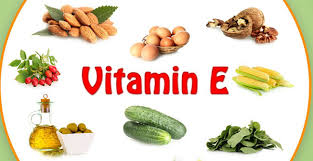Vitamin E is a fat-soluble vitamin and/or lipid-soluble antioxidant and plays a fundamental role in protecting the body against the damaging effects of oxidative stress formed in the environment. Like the other fat-soluble vitamins, its use depends on the presence of dietary fat. When deficient in this important vitamin, one is prone to impaired eyesight, infections, and some forms of skin diseases. Be it as it may, vitamin E is found in most of our food sources and one only becomes deficient except in cases of impaired absorption.
Benefits
of vitamin E
- Vitamin E inhibits processes related to the development of atherosclerosis and protects the body against free radicals and conditions related to oxidative stress such as ageing, arthritis, cancer, cardiovascular disease, diabetes, infection, and some cases of Alzheimer's disease.
- It has antiproliferative effects in the eye that are seemingly protective against conditions
such as glaucoma.
- It protects red blood cell membranes from destruction, especially in the last 2 months of gestation.
- It helps lessens the appearance of scars and deal with dry skin.
Rich
sources
The richest sources of vitamin E are vegetable oils such as canola, soybean, safflower etc. Other food sources of vitamin E include nuts (almonds, cashews, peanuts etc), seeds (pumpkin seeds, sesame seeds), and fortified cereals. It can also be found in fruits such as avocado, mango, blackberries, raspberries, and other types of berries.
PS: Because vitamin E
is readily destroyed by heat processing and oxidation, fresh or
lightly
processed foods are the best sources of this vitamin

Comments
Post a Comment